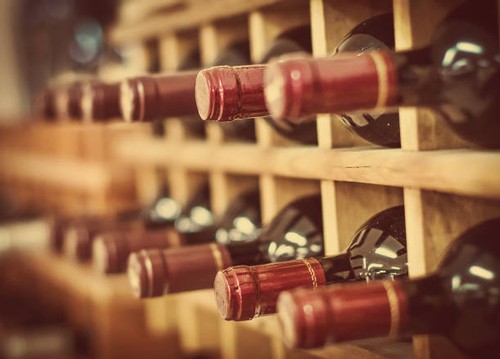The Latest News and Ramblings
A place to share various news, stories and video about wine, travel, winemaking
Wine Aging

Wine Aging
I have had a few great questions about what makes a wine age. Ageability really comes down to three things in wine…acidity, tannin and alcohol. Aging is just very slow oxidation. Without getting too crazy with the chemistry, I will try to break each one down.
Acidity and more importantly the pH of the wine has a huge effect in determining the reactivity form of many of the compounds in wine that act as antioxidants such as color and tannin. Wines with higher acid and lower pH tend to age better than wines with low acid and high pH. Acid also plays a key role in the balance of a wine and preserving the fruit and aromatics.
Tannins are a class of compounds that come from the skins and seeds of the grape as well as from oak barrels. Tannins act as natural antioxidants. The higher the tannin the more antioxidants available to slow down the aging process. Wines like Cabernet Sauvignon, Petite Verdot, Tannat and Petite Sirah all tend to have very high tannin levels. Whereas Pinot Noir, Gamay, and Barbera tend to have low natural tannin levels but often will have higher acidity to assist with aging. A good indication of the tannin level of a particular wine is the level of astringency you sense on your palate. This is the sensation of drying you feel on your gums after you swallow a sip of wine.
Alcohol can also play a role in ageability, especially when it comes to dessert wines and fortified wines such as port. Alcohol levels of 17-21% act as a preservative and allow these wines to age incredibly well. The oldest wine I have ever tasted was a Madeira from the 1800’s. Madeira is a fortified wine with extremely high acidity thus giving it both high acid and high alcohol. It was still young!
Aging wine is romantic. Many consumers fall in love with the idea of dusting off that bottle you have been saving for a really special experience only to have the wine be past its prime. I can’t tell you the number of wines I have saved for that special night only to have them be over aged and undrinkable. At the end of the day, you have to ask yourself if you really like aged wine. As a wine ages the fruit will typically go from fresh fruit characters to dried fruit characters. The acidity will soften over time and the tannins will soften. The overall wine will hopefully become more complex and integrated but eventually there will come a time when the wine peaks and starts to diminish in quality. Just because you age a wine does not make it better. Most wines these days are made to be drank upon release, even some very expensive bottles may not hold up to aging.
If you want to age your wine be sure to cellar in a dark place with a consistent temperature. Ideally 55-60F is a good aging temperature, but the important thing is to not let the temperature fluctuate a lot. This expands and contracts the headspace inside the bottle allowing more oxygen to enter the bottle. If you do not have a wine fridge built for aging, a closet in the center of the house works well. Be aware of your climate and how the temperature varies.
Just remember, life is short and enjoying a wine a little young is never as bad as not enjoying it at all!
Blog
Recent Posts
-
February 3, 2023
-
October 6, 2022
-
July 6, 2022
-
April 6, 2022
-
January 3, 2022
-
December 1, 2021
-
February 24, 2021
-
February 26, 2018
-
February 21, 2018
-
February 5, 2018
